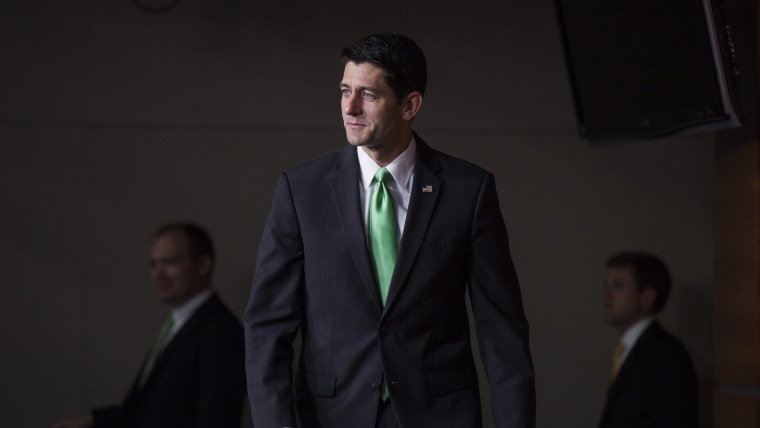By any fair metric, Paul Ryan (R-Wis.) is the most ideologically extreme House Speaker in modern American history. And yet, Donald Trump has taken deliberate steps in recent weeks to chastise the GOP leader and blame Ryan for the Republican presidential ticket's difficulties -- despite the Speaker's endorsement, which hasn't been withdrawn.Considered at a distance, it's a bizarre set of circumstances. When John Boehner, under pressure from the far-right, was effectively forced to step down as Speaker, Ryan was hailed as the one Republican -- the only Republican -- who could credibly lead the party. When the Wisconsin congressman balked, GOP insiders begged him to take the gavel. Ryan grudgingly agreed.It may seem hard to believe, but that was literally one year ago this week.Now, however, Trump has made Ryan out to be an enemy to the conservative cause; prominent far-right activists are accusing him of being involved in conspiracies against the GOP; and leading voices in Republican media have labeled Ryan a "saboteur" who needs to be replaced on Capitol Hill.And as it turns out, this is having the intended effect. The latest YouGov/Economist poll found that 64% of Trump voters have an unfavorable opinion of the Republican Speaker of the House, while only 28% have a favorable opinion. In a result that's hard to believe, the same survey found Ryan slightly more popular among Hillary Clinton's supporters than Trump's.New results from a Bloomberg Politics poll point in a similar direction.
The poll's findings showed the extent to which Trump, with his hardline positions on immigration and trade, has triumphed among the party's supporters over Ryan, with his vision of a pluralist conservative party that focuses on cutting taxes and spending.When asked which leader better represents their view what the Republican Party should stand for, 51 percent of likely voters who are or lean Republican picked Trump, while 33 percent picked Ryan and 15 percent said they weren't sure.
The same poll found Trump's favorability slipping among Republicans to 76% -- a poor number at this point in a national campaign -- but Ryan's support is actually "fading faster ... dropping 11 points to 50 percent since September among likely voters who are or lean Republican."This is notable in a short-term electoral context -- the GOP's presidential candidate picked a fight with the GOP's Speaker, despite Ryan's endorsement, and it's working as planned -- but just as important are the long-term implications.If Trump loses the presidential race, as now appears likely, Republicans will be due for a spirited conversation about its future. It will do so, however, with would-be leaders who are neither trusted nor liked by other factions within the party. The result probably won't be pretty.
